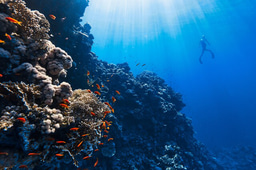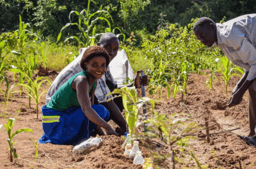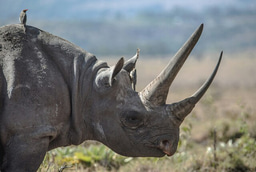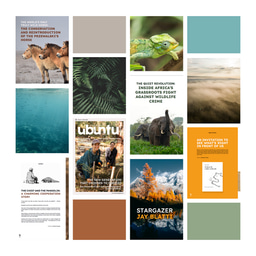Hi there. I'm Hannah.
I joined Wild Hub to study the Project Management for Wildlife Conservation course. I work for a small environmental charity based on the Solent on the South coast of England, called Final Straw Foundation. Most of our work revolves around cleaning our beaches and educating on the impact of single use plastics. However, we are branching out to include more hands on conservation and citizen science work. This means that I have been appointed project manager for an exciting native oyster restoration project, under the guidance of Blue Marine Foundation, who started restoration efforts are are encouraging organisations like ours to get involved. This is my first step into project management and I'm looking forward to gaining some skills that can help me broaden the scope of the charity and take the first step in my conservation career.
On top of managing the oyster restoration project, I also work to raise funds for the charity through grants and trusts fundraising. I would be more than happy to share my knowledge on this with the WildHub community.




Please sign in or register for FREE
If you are a registered user on WildHub, please sign in
🌊 Welcome to WildHub, Hannah! 🦪
It's brilliant to have you join us, and your energy for weaving conservation, citizen science, and community engagement together is truly refreshing. The Final Straw Foundation’s work around beach cleanups and plastic awareness is already impactful, and now branching into native oyster restoration? That’s a fantastic leap into hands-on habitat conservation.
Taking on your first project management role in such a meaningful endeavor and learning alongside the Project Management for Wildlife Conservation course sounds like the perfect blend of growth and purpose. You're laying down solid roots for a vibrant conservation career.
Also, thank you for offering to share your fundraising experience; those skills are gold in the nonprofit world, and many members here will benefit from your insights.
Out of curiosity, what drew you most to the oyster restoration project? Was it the ecological impact, the community involvement, or maybe the chance to lead something transformative from the ground up?
Feel free to explore and connect, we’re all excited to learn from your experiences and support your journey!
Warm wishes, Simon 🌍
Hi Simon,
Thanks for your comment and for welcoming me so warmly into the community.
To answer your question, I am from a historic fishing village that was once famous for its oysters. The native oyster populations have been decimated by 95% since then due to overfishing and pollution. The village has since moved on and tourism is now a large contributor to its economy. The echoes of the oyster town still remain, with old oyster beds peppering the shoreline. This story is similar to countless communities across the Solent and even across the rest of the UK and Europe. Native oysters are 'ecosystem engineers' and help facilitate a lot of the vital natural processes we see across the Solent. We may have moved on from the times where our communities were reliant on oysters, but the precious ecosystems across the region have not, and are suffering without them.
Moreover, our charity has been contributing, via funding and citizen science, to a number of studies on water quality of our local harbours. Agricultural runoff and combined sewage overflows have been contributing to water pollution. Sewage pollution in particular is a pressing issue across the UK and is at a the forefront of many peoples minds when they think about our harbours, seas and waterways . Adult oysters can filter up to 200L of water a day. This project acts as a way to monitor the effects of restored oyster populations on water quality, raising important conversations about nature based solutions to the pollution issues our communities and wildlife are facing.
Finally, this project acts as an opportunity for volunteers to get hands on conservation experience. This gives communities, once defined by the native oyster, a chance to be a part of their restoration. Making conservation and positive environmental action accessible is something Final Straw Foundation is very passionate about.
Its a very long answer but I hope it shows why this project is so important to me and the communities and ecosystems I work for.
All the best, Hannah.
Hi, Hannah, 🐚
Thank you for such a heartfelt and insightful response. Honestly, I’m blown away by the depth of connection you have to this project and the community it serves. The image of old oyster beds lining the shores like quiet reminders of ecological heritage is incredibly powerful.
Also, I had no idea that adult oysters can filter up to 200 liters of water per day, that’s astonishing! They’re truly remarkable organisms. It’s incredible to think how something so small can have such an outsized impact on water quality and ecosystem health. Learning this has given me a whole new appreciation for their role as ecosystem engineers.
I admire how Final Straw Foundation is making conservation tangible and inclusive, giving people the chance to restore what once defined their communities. This kind of hands-on hope is inspiring.
Looking forward to seeing how the restoration unfolds. It sounds like you’re at the helm of something truly transformative.
Warm wishes from Kenya,
Simon.
Happy to have you here at WildHub, Hannah! Welcome🌻
I have a question about your work on educating people about the impact of single-use plastics. Have you noticed any decline in the use of such plastics? Are there any success stories you'd like to share on this topic?
And best wishes for your oyster restoration project!
Hi Fairuse,
Thanks for your reply.
Yes, we definitely have plenty of success stories across our area of operations.
Firstly, we have a free accreditation scheme for businesses that are reducing their reliance on single use plastics and becoming generally more sustainable. We have given out over 45 accreditation certificates so far to businesses that are making sustainable swaps.
On a smaller scale, we run a plastic free day, as well as Halloween costume and Christmas jumper swap events. So far, we've had over 90,000 people participate in these events worldwide.
We've also set up a 'borrow bag' scheme, where volunteers make tote bags from fabric destined for landfill. These bags are donated to local shops, where customers can borrow them and bring them back to any participating business. This has taken approximately 100,000 plastic bags out of circulation across the participating towns.
These are just a few of our many success stories. We have lots of projects that we're really proud of so thanks for giving me an opportunity to shout about them!
Welcome to WildHub, Hanna!
Wonderful to have you join us, how are you finding the PMWC course?
Hi Flavia,
I'm enjoying it thank you. Looking forward to learning more.